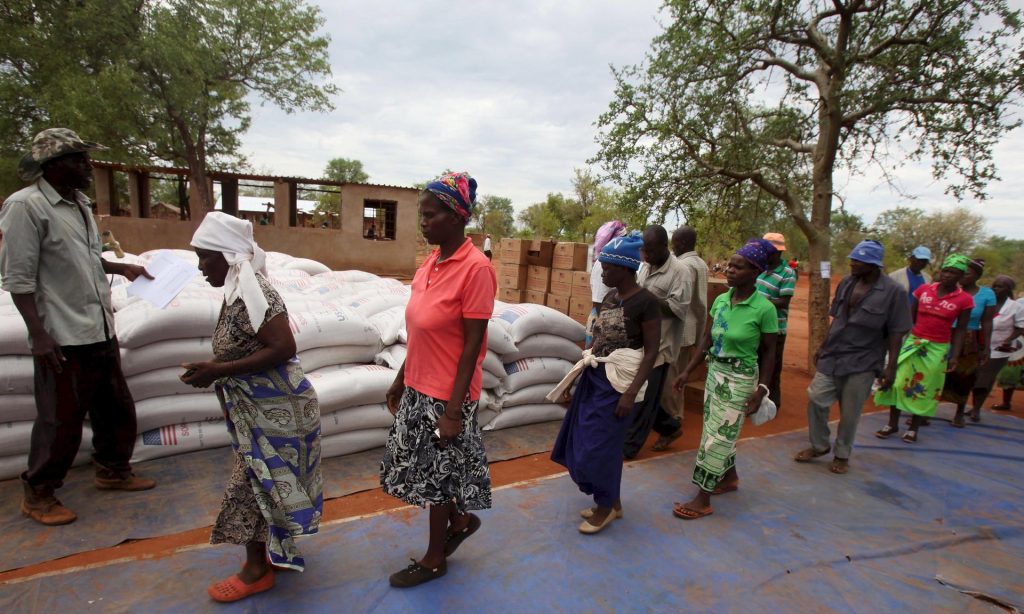
Photograph: Philimon Bulawayo / Reuters/Reuters
Aid agencies have called on President Robert Mugabe’s government to look beyond political differences and prioritise humanitarian principles after the Zimbabwe Human Rights Commission accused the ruling Zanu-PF party of partisan food aid distribution.
The commission’s chairman, Elasto Mugwadi, revealed this week that an official investigation into alleged discrimination in the distribution of food had uncovered evidence of political bias, theft of relief items and allegations of assault.
The inquiry was prompted by what Mugwadi described as “a flood of complaints” from communities grappling with severe food shortages caused by the country’s worst drought in 35 years.
Responding to reports of discriminatory food circulation, Machinda Marongwe, Oxfam’s country director in Zimbabwe, said: “Oxfam is deeply concerned with these findings and calls for humanitarian principles of humanity, neutrality and impartiality, to be upheld in order to effectively deliver much needed assistance to the 4.2 million people affected by the drought. Every person has a right to receive the help they need, regardless of their political views.”
“The government should empower existing structures in the communities such as the Drought Relief Committees to better deal with such occurrences and ensure food assistance reaches all who need it, in a fair manner.
“At this point in time we should not be dealing with issues to do with the selection criteria of beneficiaries, but rather focusing more on short-term action to feed the vulnerable.”
The need to put philanthropy before politics was also underlined by the World Food Programme, a spokesman for whom stressed the need for relief efforts to be closely coordinated between agencies, donors and government. “WFP is providing a wide range of food and nutrition assistance in Zimbabwe, though not in any of the districts cited in the recently issued ZHRC report,” said the spokesman.
“WFP has in place a range of mechanisms to mitigate against the politicisation of food assistance in Zimbabwe … in coordination with the government, donors and other partners, we carry out food security assessments, including through the Zimbabwe Vulnerability Assessment Committee, to determine the areas and the number of people in need of food or cash assistance.
“Every stage of the process, right up to and including actual distribution, is monitored by WFP and cooperating partners to ensure that assistance only reaches those entitled to it.”
Others, however, appear to have been less punctilious. Speaking in the Zimbabwean capital of Harare on Wednesday, Mugwadi spoke of “unbridled maladministration on the part of some officials public officials who were allegedly performing their duties partially and with bias against persons of particular political affiliations”.
“The ruling party members were the major perpetrators in violations linked to distribution of food, agricultural inputs and other forms of aid,” said Mugwadi.
Youths connected with Zanu-PF openly told people affiliated to the opposition that they would never get food aid, he added, revealing that the problem affected several rural areas across a country already riven by economic crisis.
In February, Mugabe, 92, declared a state of disaster in regions affected by the El Niño-induced drought. The crisis has left 4 million people severely hungry and in need of humanitarian aid until the next harvest season in March 2017.

